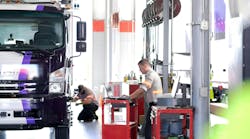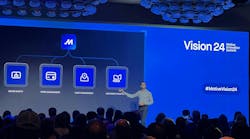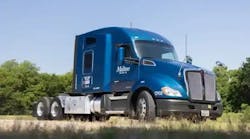FTSC is an alliance of companies in the fields of asset tracking, vehicle monitoring, emergency response, mobile resource management systems, equipment finance and insurance. The consortium was assembled in late 2001 in response to the need for a comprehensive solution to the threat of terrorist attacks on the hazardous materials supply chain.
In order to help reduce the risk of hijacking, tampering or theft of hazardous materials loads, the group says data from modern location and sensoring devices should be collected and analyzed by a central monitor that can simultaneously track the 200,000 assets in the hazmat supply chain.
"If there is another terrorist attack, that monitor must be able to communicate rapidly and authoritatively with the police, fire and other first responders across the country," said Drew Robertson, FTSC director. "That's a round-the-clock job that is too big for any single shipper or carrier."
There are hundreds companies of in the vehicle tracking and mobile resource management industries using many different proprietary systems, he noted.
"We can't build an effective centralized security tracking system if we have dozens and dozens of operating systems that can't talk to each other," Robertson said.
For now, most of the security efforts underway are still in the "education" phase, said Curtis Serna, founder & CEO of Jacksonville, FL-based SafeFreight Inc. "We are still in the education mode because there is much to still work out in terms of security," he explained. "When you look at tracking technology, for instance, it can help you locate a stolen trailer but by the time you find it, the cargo is gone. We need to focus more on prevention than on recovery, mainly because preventing cargo theft and other criminal activity is always less expensive than recovery efforts."


